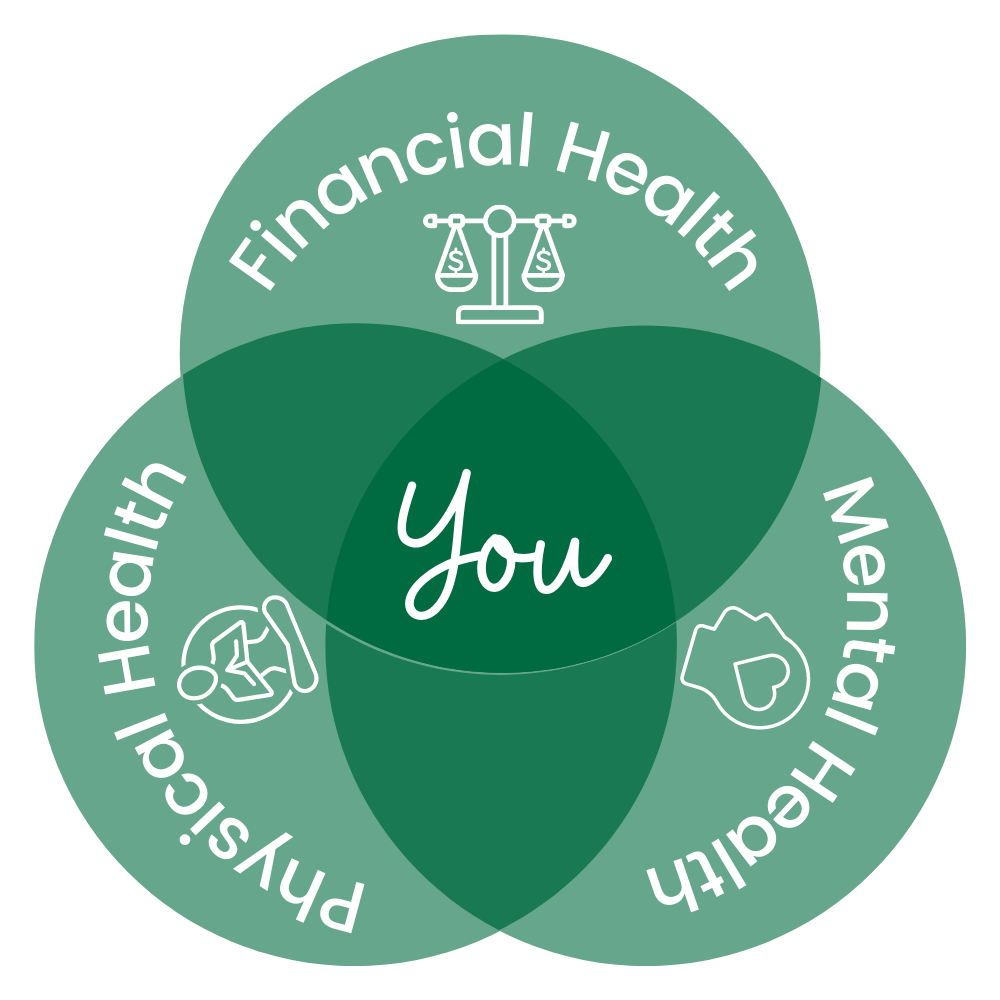Online Banking
Routing Number: 291274085
We will never ask for your login information, do not give it out to anyone.

Autumn is coming fast! The air is cooling, and the leaves are already changing. This fall, we are focusing on financial wellness and what that means for you: our members and our communities.
What is financial wellness?
A formal definition of financial wellness is that it is the outcome of effectively managing your money and economic life. It means spending less than you make, managing some type of a budget, being financially prepared for emergencies, and having a financial plan for your future.
To us, it goes much deeper than a quick dictionary definition. The financial wellness of our members and our communities is a driving purpose for NorthRidge. Your financial wellness effects your mental and physical health as well, which is why is it so important to find harmony with your finances.

If you feel uncertain or are struggling with your finances, you are not alone. Recent surveys from the Financial Health Network show that 1 in 5 American adults feel financially vulnerable. Almost half of American adults do not have enough liquid savings to cover 3 months of expenses, more than half are not confident about their long-term financial goals, and 1 in 4 have more debt than they believe is manageable. The stress that financial vulnerability brings onto a family can be devastating to mental and physical health.
It can be a vicious cycle: Stressing about finances can lead to anxiety and depression. Anxiety and depression can lead to further financial struggles by making it more difficult to effectively manage money and spending, and can affect work performance, leading to a threat of losing an income. 86% of those that have mental health issues and debt say that their debt worsens their mental health issues.
NorthRidge wants to create positive financial futures for our communities, and we are here to provide the guidance and tools you need to feel confident in your finances. Most of our staff are Credit Union Certified Financial Counselors and can help you set a budget and plan for your future.
The point is, do not struggle in silence. We are all in this together.
Come in and tell us your story; to us, you are not defined by your credit score, we care about YOU.
And finally, in closing, September is observed as National Suicide Awareness Month. Below are some resources if you or someone you know needs help.
National Suicide Prevention Lifeline, immediate support when you’re in a crisis or distress, additional help to finding resources. Available 24/7: Call 800-273-8255
Suicide Prevention Lifeline Online: https://suicidepreventionlifeline.org/
Crisis Text Line, the 24/7 emergency service is available if you or someone you know is experiencing a psychiatric or mental health crisis. Text: “MN” to 741741
National Alliance on Mental Illness (NAMI) Minnesota, connect for help, to navigate the mental health system, get support, and find resources: Call 888-626-4435
Minnesota Warmline, talk to a specialist who has firsthand experience living with a mental health condition: Call 651-288-0400 OR Text: “Support” to 85511
Substance Abuse and Mental Health Services Administration Disaster Distress Helpline, offers crisis counseling and support if you or a family member is experiencing emotional distress related to a disaster. Call 800-985-5990
Peer Support Connection Warmlines, peer-to-peer telephone support that’s safe and supportive. Open 5 p.m. to 9 a.m. Call or text: 1-844-739-6369
Alcohol Detox/Range Treatment (Virginia): 218-741-9120
Calm Waters (Virginia): 218-404-9611
Ely Behavioral Health Network (Ely): 218-235-6104
The Guidance Group (Virginia): 218-576-5757
Heartwood Center (Hibbing): 218-263-1347
Insight Counseling (Virginia and Hibbing): 218-481-7660
Kind Mind Counseling Center (Hibbing): 218-263-5949
Lakeview Behavioral Health (Hibbing): 218-293-4789
MosaicSelf Counseling (Ely): 218-216-8467
Range Mental Health Center (Virginia): 218-749-2881
Range Mental Health Center (Hibbing): 218-263-9237
Speare Psychological Services PA (Virginia): 218-741-3740